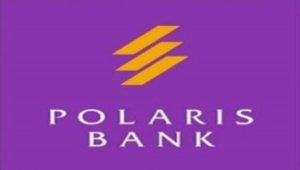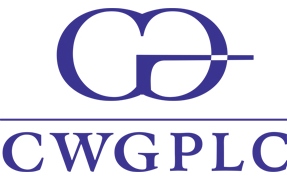E-Financial
Agbaje, GTCO CEO Charges FG on Adoption of Electronic Payments to Propel Digital Economy
Mr Segun Agbaje, the Chief Executive Officer, of Guaranty Trust Holding Company Plc, has emphasised the importance of the federal government adopting electronic payment methods across all sectors to drive digital economy.

Agbaje reiterated that for Nigeria to thrive in the digital landscape, a fundamental shift is required from traditional payment methods to technology-driven solutions.
He advocated for a comprehensive embrace of digital payment platforms, citing their transformative potential in streamlining processes, enhancing efficiency, and fostering economic growth.
Agbaje stated this while giving his keynote address at the Nigeria Banking Connect 2024 organised by Infosys Finacle, over the weekend.
According to him: “We need a government from an incentive perspective when you are a government that is ready to make all payments or incentive payments, whether it’s pension payments on a digital platform so that we can bridge the chicken and the egg.
“In terms of business readiness, there are some key foundations that we need to be part of what we call a digital economy. And what is a digital economy, a digital economy is a part of economic alpha that you get from digital technology, and you need all the things for it to work properly.
“Most of it is not rocket science. You must have enabling macros to do it, you must have data privacy, you must have competition, you must have cyber security, open banking, and Application Programming Interface (APIs), these are all required to have a digital economy.
“So, Africa 2030 we have to have internet connectivity, we have to make it more affordable, we have to have proper financial inclusion, not cash in, cash out. You have to have a digital economy where people can borrow, they can make payments, they can deposit.”
Highlighting the misconception that mobile payments are the central focus of financial inclusion in Africa, he underscored the broader array of financial services provided through digital platforms and stressed the significance of cultivating a sustainable model that integrates these platforms for insurance, lending, and payments within a unified ecosystem.
He said: “Financial inclusion contrary to what we think in Nigeria is not cash in, or cash out. Financial inclusions revolve around increasing a sustainable model where you can use digital platforms to do insurance, lending, and payments. And that’s what we’ve done very successfully.”
In envisioning Africa’s digital future by 2030, Agbaje outlined key objectives, including improved internet connectivity, affordability, robust financial inclusion strategies, and the establishment of a digital economy facilitating borrowing, payments, and deposits.
He urged governments to incentivise the shift towards digital platforms, citing the need for initiatives like pension payments on digital platforms to bridge the transition from traditional to digital payment methods.
He further expressed confidence that Africa has the potential to become a digital continent by 2030, with the phased eradication of traditional payment methods in favour of comprehensive digital solutions.
E-Financial
CBN Introduces EFEMS to Enhance Transparency in Forex Market
Central Bank of Nigeria (CBN) has introduced an Electronic Foreign Exchange Matching System (EFEMS) for Foreign Exchange (FX) transactions within the Nigerian Foreign Exchange Market (NFEM).

Yemi Cardoso, Governor, CBN
According to the CBN, the new system will be operational in the Nigerian Foreign Exchange Market by 1 December 2024 after a two-week test run scheduled for November.
In a circular signed by Dr. Omolara Duke, director of the Financial Market Department at the CBN, the apex bank explained that EFEMS is designed to improve governance and transparency in the FX market.
It is also expected to promote a market-driven exchange rate that will be more accessible to the public.
According to the CBN, “the introduction of EFEMS will enhance governance, transparency, and facilitate a market-driven exchange rate accessible to all.”
The system is expected to curb speculative activities, reduce market distortions, and provide the CBN with improved oversight capabilities for regulating the market effectively.
The CBN said it will publish real-time data on prices and buy/sell orders from the EFEMS. Additionally, in collaboration with the Financial Markets Dealers Association (FMDA), the CBN will release the rules for operating the system.
It added that the Nigerian FX Code and revised Market Operating Guidelines will also offer guidance to market participants.
Also, authorized dealers are required to ensure full compliance with the existing guidelines governing the Nigerian foreign exchange market and must complete all necessary documentation, training, and system integrations ahead of the December go-live date.
E-Financial
FG to Rename FIRS, Plans Tax Tribunal
President Bola Tinubu has transmitted four Fiscal Policy and Tax Reform Bills to the National Assembly for accelerated consideration and passage into law, including Economic Stabilisation Bills, which seeks the repeal of the Federal Inland Revenue Service (FIRS) Act and enactment of the Nigeria Revenue Service Act in its place.

Tinubu also transmitted the Joint Revenue Board (Establishment) Bill, intending to create a tax tribunal and a tax ombudsman for the country.
Others are the Nigeria Tax Bill 2024, which is expected to provide the fiscal framework for taxation in the country, and the Tax Administration Bill, which will provide a clear and concise legal framework for all taxes in the country and reduce disputes.
Tinubu conveyed Bills via a letter addressed to Hon. Abbas Tajudeen, speaker of the House of Representatives , which was read on the floor of the House at plenary on Thursday.
Tinubu stated that the four Bills will help actualise government’s desire for a proper tax and financial regime for Nigeria, and expressed confidence at the usual cooperation of the House of Representatives on such critical matters.
“The proposed tax bills present substantial benefits that align with my government’s objectives and fiscal reform on the economic growth by enhancing taxpayer compliance, strengthening our fiscal institutions and fostering a more effective and transparent fiscal regime,” he said.
The president had in his Independence Day national broadcast said: “To stimulate our productive capacity and create more jobs and prosperity, the Federal Executive Council approved the Economic Stabilisation Bills, which will now be transmitted to the National Assembly.
“These transformative bills will make our business environment more friendly, stimulate investment and reduce the tax burden on businesses and workers once they are passed into law.”
E-Financial
Polaris Bank Emerges Nigeria’s Top Bank in MSME Lending
Polaris Bank, a money deposit retail bank in Nigeria, has been recognised as the country’s top bank in Micro, Small, and Medium Enterprises (MSME) lending at the inaugural MSME Finance Awards 2024.

The event, organised by Nairametrics and The Economic Forum, took place over the weekend in Lagos. This award highlights Polaris Bank’s dedication to supporting MSMEs through various direct and indirect funding initiatives.
The judges emphasized the bank’s consistent efforts in providing sustainable finance, which has enabled Nigerian entrepreneurs to grow and expand their businesses.
In response to the award, Polaris Bank’s Managing Director, Mr. Kayode Lawal, expressed gratitude and reaffirmed the bank’s commitment to supporting Nigerian MSMEs.
He noted, “We are honoured by this recognition, which underscores our unwavering commitment to empowering micro, small, and medium businesses. These enterprises are essential drivers of economic growth, innovation, and job creation.”
Lawal also praised Nairametrics and The Economic Forum for their recognition, adding, “This award is a testament to our team’s dedication to providing tailored financial solutions. It further motivates us to continue our strategic focus on MSME lending, financial inclusion, and Nigeria’s broader economic development.”
Polaris Bank’s approach to MSME lending aligns with its mission to deliver innovative, customer-centric services that help businesses thrive, further cementing its reputation as a key player in driving Nigeria’s economic progress.

 E-Financial3 days ago
E-Financial3 days agoZenith Bank Assures Customers on Seamless Transactions, Apologizes for Disruptions During Infrastructure Upgrade

 E-Financial2 days ago
E-Financial2 days agoCBN Introduces EFEMS to Enhance Transparency in Forex Market

 E-Business1 day ago
E-Business1 day agoCybercriminals Using “Joker: Folie à Deux” Release to Scam Fans

 E-Business2 days ago
E-Business2 days agoKaspersky Reveals Half of Dark Web Exploit Listings Target Zero-day Vulnerabilities

 Telecom2 days ago
Telecom2 days agoFG Hopeful Thuraya’s Relaunch in Nigeria Will Boost Fight against Insecurity, Others

 News2 days ago
News2 days agoNigeria Police Charge 4 Journalists with Cybercrimes for Corruption Reporting

 E-Financial2 days ago
E-Financial2 days agoFG to Rename FIRS, Plans Tax Tribunal

 E-Business2 days ago
E-Business2 days agoSpotify Launches Offline Backup for Premium Users






















